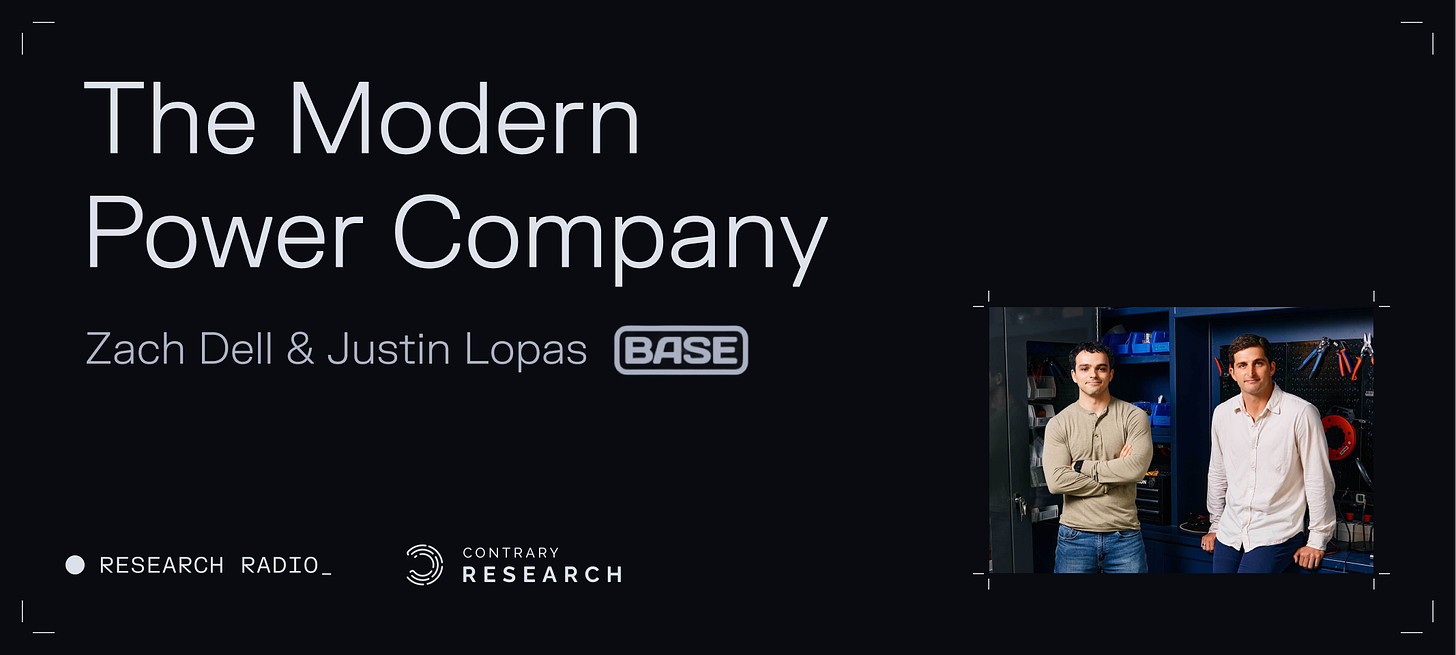Contrary Research Rundown #116
Why Databricks chose a $10 billion Series J over a 2024 IPO, plus new memos on Boston Metal and Lookout
We want to thank our readers for your support in 2024 and wish you a Happy Holidays. This will be our final Research Rundown for the year. As we prepare for 2025, please let us know how you think we can improve our coverage going forward by filling out this brief survey.
Research Rundown
One of the biggest questions in the venture capital world over the last two years has been, “When will the IPO window reopen?” After a hot 2020 and 2021 which delivered 46 and 121 tech IPOs, respectively, new listings slowed to a crawl, with only 15 total tech IPOs through 2022 and 2023 combined. With venture capitalists growing anxious to return capital to their investors, the hope was that 2025 would be the year that the IPO window reopened.
Given the strong performance of companies like Reddit, which has seen its stock price more than triple since going public in March, and ServiceTitan, which ended its first trading day above $100 per share after initially pricing its IPO at $71 a piece, VCs are hopeful that there will be more to come. However, ironically, one of the biggest forces preventing more companies from going public is venture capitalists themselves.
Earlier this week, data and AI platform company Databricks announced that it was raising a $10 billion, non-dilutive Series J at a $62 billion valuation led by Thrive Capital. The non-dilutive stems from the fact that most of the capital is going toward buying employees’ shares in a tender offer. Basically, this fundraise is as much an employee liquidity event as it is anything else.
Historically, a liquidity event for a $62 billion dollar company would be an IPO, not a private funding round, but in an interview with Dan Primack at Axios’s AI Summit, CEO Ali Ghodsi explained why his company was holding off on going public:
“This year was an election year. We wanted to get some stability — people are worried about interest rates, inflation... So we said look, it’s dumb to IPO this year, so we’re definitely going to wait.”
One of the primary drivers for going public is employee liquidity: long-time employees are richly-valued private companies have a significant portion of their net worth tied to illiquid stock, and an IPO allows them to realize that wealth. However, public markets come with headaches, such as extensive regulatory requirements, investors who obsess over quarterly earnings, and the stress associated with a stock price that fluctuates in real time.
Databricks, and other A-list private companies like Stripe and SpaceX, is in an enviable position in that there is a large selection of willing buyers in the private markets who are interested in Databricks stock, so the company can tap private markets for funding that it would have historically looked to public markets for. The result? Databricks can extend its life as a private company, waiting for an optimal, derisked time to go public.
This is great for companies who can be choosy on their IPO timing, but it only amplifies the existing liquidity woes in private markets. That being said, Ghodsi hinted at a 2025 or 2026 IPO, so maybe we’ll see a public listing in the near future instead of a Series K.
For further reading on Databricks, check out our memo on the company, as well as our deep dive comparing Databricks and its competitor Snowflake.
Boston Metal is developing a cleaner process to create steel through its Molten Oxide Electrolysis (MOE) technology, which uses renewable electricity to produce steel without emitting carbon dioxide. To learn more, read our full memo here and check out some open roles below:
Senior Cybersecurity Analyst - Woburn, MA
Model Based Controls Engineer - Woburn, MA
Lookout is a cybersecurity company specializing in mobile endpoint security and cloud security solutions for enterprises. To learn more, read our full memo here and check out some open roles below:
Principal Product Manager, Cloud - Remote (US)
Principal Product Manager, Cloud - Remote (Canada)
Check out some standout roles from this week.
Rippling | San Francisco, CA or Remote (US) - Senior Security Engineer (Detection and Response), Fullstack Engineer II, Senior Backend Engineer (AI Products), Senior Program Manager (R&D/Engineering Enablement), Director of Product Management (Platform), Program Manager (Benefits Marketplace)
Canva | Sydney, NSW - Senior Frontend Engineer (Learning Experience Group), Data Lead (Print), Senior Frontend Engineer (AI Enablement), Product Lead (Print), Senior Frontend Engineer (Conversational Editing)
Anduril | Costa Mesa, CA - Aerodynamics Engineering Lead (Blades - Maneuver Dominance), Head of Hardware (Air Dominance and Strike), Air Defense (Mission Software Engineer, Front-End), Game Development Engineer
Lattice | San Francisco, CA, New York, NY or Remote - Director of Product Design, Senior Engineering Manager (Developer Platform), Senior Product Security Engineer, Software Engineer,
Perplexity has raised $500 million in funding, tripling its valuation to $9 billion. The round, led by Institutional Venture Partners, follows rapid growth this year: the company was valued at $1 billion in April and $3 billion in June after an investment from SoftBank’s Vision Fund.
Chime, a fintech company offering no-fee banking services, has confidentially filed for an IPO with plans to go public in 2025. The IPO timing is tentative and may change, according to sources familiar with the matter. The company has raised $2.7 billion as of December 2024 and was last valued at $25 billion when it raised $1 billion in 2021.
Google introduced a new video model, Veo 2, and an updated Imagen 3 in VideoFX, ImageFX, and the Labs experiment Whisk. Veo 2 produces high-quality videos with improved realism, understanding of physics, and human movement. It supports 4K resolution, extended lengths, and cinematographic prompts like specifying lenses or shot styles for customized video outputs.
TikTok and ByteDance asked the US Supreme Court to block a law requiring TikTok to be sold or banned in the US. The company has requested a decision by January 6 to allow time for app stores and hosting providers to comply with a potential ban by January 19. TikTok argues the law violates free speech rights for users and the company, but the Department of Justice recently urged an appeals court to deny ByteDance's efforts to halt the law.
Oura, a Finland-based wearable tech company, raised $200 million in funding at a $5.2 billion valuation, led by Fidelity Management and Dexcom. Known for its smart rings, the company has surpassed 2.5 million sales and doubled revenue to about $500 million in 2024. The funds will support product diversification, AI investment, international expansion, and potential acquisitions.
Boom Supersonic's XB-1 demonstrator continues testing in Southern California, nearing supersonic flight. During its 10th test flight on December 19 at the Mojave Air & Space Port, the aircraft reached Mach 0.95, within the transonic range (Mach 0.8–1.2). The flight, piloted by chief test pilot Tristan Brandenburg, also achieved a new altitude record of 32.4K feet during the 46-minute mission.
A 53-year-old woman became the third person to receive a genetically modified pig kidney transplant at NYU Langone Health. The kidney, altered to minimize rejection, is functioning well, and the patient is off dialysis. Doctors will monitor her for the next three months to assess the long-term effects. This marks another step in the experimental approach of using animal organs for human transplants.
Grammarly is acquiring Coda for an undisclosed amount to expand its AI capabilities for business productivity tools. As part of the deal, Coda CEO Shishir Mehrotra will become Grammarly’s new CEO. The acquisition aims to combine Grammarly's writing assistance with Coda’s workflow tools, creating a unified platform for smarter productivity.
China launched the first batch of satellites for its Guowang mega constellation, which aims to deploy up to 13K spacecraft over the next decade. The satellites will provide low-latency, high-speed internet, similar to SpaceX’s Starlink. However, details on service targets, specifications, or user terminals have not been revealed. The launch took place aboard a Long March 5B rocket.
OpenAI announced updates to its AI tools, including the new o1 API with enhanced features like function calling and vision capabilities, real-time API improvements with lower costs for GPT-4o audio, and GPT-4o mini support. It also introduced Preference Fine-Tuning for easier model customization and beta SDKs for Go and Java. These changes aim to boost efficiency and developer flexibility.
Perplexity has acquired Carbon, a tool for linking external data sources like Notion and Google Docs to language models. The integration will streamline data access and enhance Perplexity’s ability to deliver insights by aggregating information from various platforms. Carbon’s team will join Perplexity to accelerate development.
Google launched Gemini 2.0 Flash Thinking, an experimental reasoning AI model available on its AI Studio platform. Built on the Gemini 2.0 Flash architecture, it is designed for multimodal tasks and solving complex problems in areas like programming, math, and physics. Similar to OpenAI’s reasoning models, it incorporates self-checking mechanisms to minimize common AI errors.
Figure has officially become a revenue-generating company. This week, it delivered its F.02 humanoid robots to a commercial client, marking 31 months since the company's incorporation. The robots are now operational at the client's site.
In last month’s episode of Research Radio, we sat down with Base Power Co-Founders Zach Dell (CEO) & Justin Lopas (COO). You can check out the full episode here.
At Contrary Research, we’ve built the best starting place to understand private tech companies. We can't do it alone, nor would we want to. We focus on bringing together a variety of different perspectives.
That's why applications are open for our Research Fellowship. In the past, we've worked with software engineers, product managers, investors, and more. If you're interested in researching and writing about tech companies, apply here!












What’s the largest pre IPO priv round before Databricks?